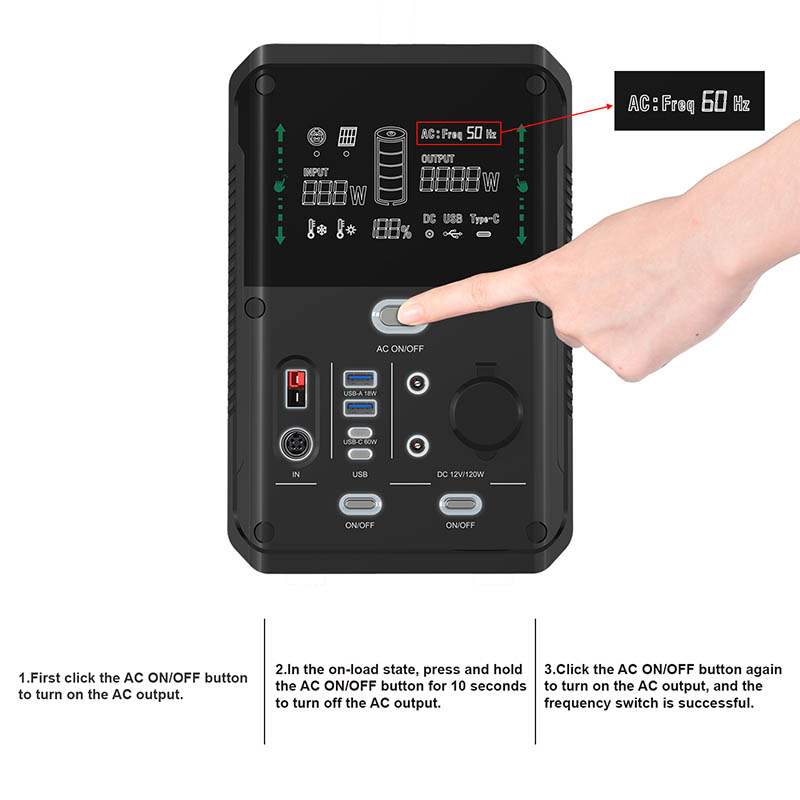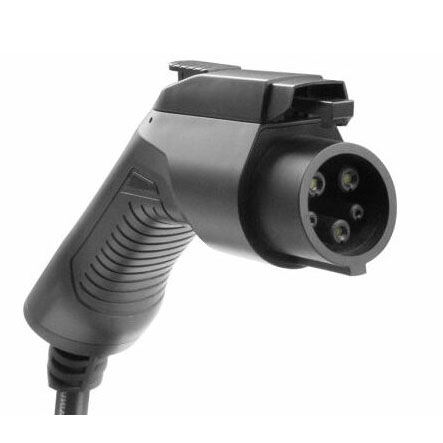Jonas LaPointe brings out the charger for his Polestar 2 at his home in Williamsburg. STAFF PHOTO/CAROL LOLLIS
Designated charging station for electric vehicles at River Valley Market in Easthampton. STAFF PHOTO/CAROL LOLLIS Electric Car Charging Stations

Jonas LaPointe demonstrates the charging ability of his Polestar 2 at his home in Williamsburg. STAFF PHOTO/CAROL LOLLIS
Designated charging station for electric vehicles at River Valley Market in Easthampton. STAFF PHOTO/CAROL LOLLIS
Designated charging station for electric vehicles at River Valley Market in Easthampton. STAFF PHOTO/CAROL LOLLIS
Jonas LaPointe talks about the battery life and the charging ability of his Polestar 2 at his home in Williamsburg. STAFF PHOTO/CAROL LOLLIS
Mary Chicoine of Greenfield pays to charge her Kia Niro EV car at a ChargePoint charging station in the Olive Street Parking Garage in Greenfield. STAFF PHOTO/PAUL FRANZ
Mary Chicoine of Greenfield charges her Kia Niro EV car at a ChargePoint charging station in the Olive Street Parking Garage in Greenfield. STAFF PHOTO/PAUL FRANZ
Mary Chicoine of Greenfield charges her Kia Niro EV car at a ChargePoint charging station in the Olive Street Parking Garage in Greenfield. STAFF PHOTO/PAUL FRANZ
With a typical gas-powered vehicle pumping 4.6 metric tons of carbon dioxide into the atmosphere each year, and the price of gas remaining volatile, many Baystaters are swapping the pump for the plug, purchasing electric vehicles both to reduce their carbon footprint and keep a little more green in their wallets.
Though most car owners have not yet retired their gas-fueled vehicles, the state is hoping to change that over time through a combination of goals and incentive programs, as well as plans to build a reliable network of DC fast charging stations across highways in Massachusetts.
The state’s goal is to get 300,000 electric vehicles (EVs) on the road by 2025, and it has set a target date of 2035 to end the sale of new gas-powered vehicles.
According to the U.S. Department of Energy’s Alternative Fuels Data Center, Massachusetts boasts the highest EV ownership of the six New England states, with 30,470 EVs registered as of June 2022.
Jonas LaPointe, secretary of the Pioneer Valley Electric Automobile Association, called 300,000 EVs “an ambitious goal, but I think it is totally doable as long as we have investment in the infrastructure at the same time,” said.
EV adoption is happening faster than many analysts expected, which is accelerating the build-out of charging networks. The Department of Energy reported that from 2020 to 2021, national EV sales grew by 85%.
The availability of more makes and models, improved technology and battery range, lower vehicle prices and rebate programs are all helping to attract more buyers.
Gary Rome of Gary Rome Hyundai in Holyoke said he has seen a large increase in EV sales.
“They started getting more popular about two years ago, but the demand now is huge, and most of the cars are sold before they even arrive,” Rome said. “Last month we sold 33, and year to date 160,” he said in October.
Nick Costa of Easthampton owns a 2016 Model S Tesla and a home charger. He says he will never own a gasoline vehicle again, primarily because of the cost savings and improved driving experience.
“I used to spend about $300 a month on gas driving to Springfield every day,” he said. “Now I’m saving about $200 a month, so it has been very cost-effective for us, and not only that it is also really fun to drive.”
Funded by the Massachusetts Department of Energy Resources and administered by the Center for Sustainability, the state’s MOR-EV program now offers rebates of $3,500 for qualifying vehicles. To date the program has spent over $42 million providing rebates for over 20,000 EVs.
The Inflation Reduction Act brings down the price of EVs, and provides a clean vehicle tax credit worth up to$7,500 for qualified new EVs, and a credit of up to $4,000 for used EVs.
Through the Neighborhood Access and Equality Grant Program, the act also makes $3 billion available to support access to EV charging in economically disadvantaged communities.
The Massachusetts Department of Environmental Protection offers the Massachusetts Electric Vehicle Incentive Program, which helps property owners and managers with publicly accessible parking to acquire electric vehicle charging stations.
Funding covers up to 80% of EV charging station and installation costs for non-government-owned property, and up to 100% of those costs for municipalities.
Utilities including National Grid and Eversource have Make Ready programs to assist with installation of chargers for businesses and municipalities. They also offer off-peak charging rebates and incentives for home charging, which helps save consumers money, while reducing strain on the grid.
According to Arron Munson of Recharge America, currently 90% of EV owners have charging stations at home.
Several municipalities in the Pioneer Valley have taken advantage of the state programs and installed public charging stations in their communities, as have many businesses.
“In Greenfield, we put in six charging stations, each with two plugs and they are in use constantly,” said Greenfield’s Energy & Sustainability Director Carol Collins. “We worked with Eversource Make Ready grants and because we also qualified as an environmental justice community, they also covered the units themselves, so Eversource paid the entire cost,” Collins said.
She noted that Stop & Shop and Greenfield Community College are among some of the other EV charging locations in the city.
Christopher Mason, Energy and Sustainability officer in Northampton, said the city has installed eight dual port level 2 chargers in city parking lots and a ninth that is soon to be activated at a fire station.
“Northampton wants to support both green technology and the economy,” Mason said. “We recognize that people come here for dinner and to shop, and they need to be confident that they can charge up in town if they need to.”
Mason said most of the funding for the charging stations came from the Massachusetts Electric Vehicle Incentive Program, saving the city $7,000 on each $9,000 ChargePoint station purchased.
Some other charger locations in Northampton are hosted by the Hotel Northampton, Big Y, Whalen Insurance, the Fairfield Inn and Cooley Dickinson Hospital, among others.
In Easthampton, the River Valley Co-op installed seven dual port level 2 charging stations in 2021 and says that usage has been growing.
Co-op general manager Rochelle Prunty said the co-op has used 26,000Kw hours in one year, which saved the production of 16,370 kilograms of greenhouse gas. According to the EPA Greenhouse Gas Equivalency Calculator, that is roughly equal to the emissions produced by driving 40,000 miles in a gas-fueled vehicle.
“We got a Make Ready grant from Eversource which funded the infrastructure, and two other grants from Massachusetts EVIP that paid for the charging stations themselves,” Prunty said. “In total, we received $215,000 in grant money.”
EV advocate and Greenfield resident Bill Ashley said the Pioneer Valley has a good north-south span of charging stations.
“I know there is a nice corridor of charging stations from Greenfield to West Springfield,” Ashely said. “So that is pretty comforting.”
To find out where charging stations are located in the Pioneer Valley and across the country, both Collins and Ashely suggest visiting Plugshare.com, which not only lists locations, but tells drivers the type and availability of chargers, provides photos of the location, and publishes public reviews of stations.
Ashley has made several trips around the country in his Chevy Bolt. He said chargers were sparse at times, but one of the most frustrating problems was charging units that were out of service, a common complaint of EV drivers.
According to Ashley and Mason, ChargePoint chargers are extremely popular for their durability and functionality. They account for most of the units in the Pioneer Valley, except for the Tesla charging stations which are proprietary to the brand.
“I think Massachusetts is going to do a lot more for charging, but if other states aren’t as appreciative of electric vehicles, that’s where it gets hard going when you are traveling,” Ashley said. “But with the Biden administration helping every state have fast chargers on the highways, then at least you can get through them, even if you can’t stay in them.”
The Federal Highway Administration’s National Electric Vehicle Infrastructure (NEVI) program has made $5 billion available over a five-year period to help build a nationwide network of convenient and affordable charging stations.
In September, the Biden administration approved $900 million in NEVI funding to help install EV chargers across 50 states, covering 75,000 miles of highway.
The goal is to create a convenient, reliable and affordable network in which EV charging stations are located at 50-mile intervals on highways and within a mile of an interstate or highway exit. States will determine the exact locations. Each station must have at least four DC fast chargers.
“The federal government’s approval of our plan is an important milestone in efforts to support the commonwealth’s transition towards low-carbon transportation,” said state Transportation Secretary Jamey Tesler. “Implementation of the plan will help EV buyers know they will be able to charge their vehicles on major highways in Massachusetts when they take long-distance trips.”
The implementation of this program by MassDOT is now dependent upon the finalization of spending ground rules and a federal standard for DC fast charging equipment stations.
A reliable network of charging stations will not only require durable, efficient and well-maintained charging stations — the real challenge will be delivering the electricity needed to power those stations.
This November, National Grid released a report that predicted a typical highway site will eventually need about 20 fast chargers to serve expected increase in EVs, which will begin to exceed distribution capacity in the next five to 10 years.
“The bottom line of the study is that there’s a lot more charging need coming online even sooner than we thought,” National Grid’s Director of Clean Energy Development Colette Lamontagne said, noting that gathering the data was the first important step toward meeting the needs of the region. “We can adjust to that challenge, and we need to start thinking about it now and working collaboratively with the state to figure out the best and most cost-effective way to do that.”
ISO New England in Holyoke manages the power grid for the six New England states. By the early part of the next decade, the company forecasts that there will be over 1.5 million electric vehicles on the road in New England, contributing more than 1,000 MW to summer peak electricity demand.
In its “Update on the 2023 Transportation Electrification Forecast,” the company says that it is developing adoption scenarios about the pace, extent and needs of transportation electrification within each state it serves to prepare for the increased needs.
With the transportation sector being responsible for more greenhouse gas emissions than any other sector of the economy, experts say taking proactive measures to promote EV use and meeting the region’s goals for a clean robust power grid are a critical step toward combating climate change.
Climate Change at Home is sponsored by Whalen Insurance.
GOSHEN — State Police found the body of a 64-year-old man who was reported missing while hunting in the woods in Chesterfield this week in Goshen...
The last time my husband and I road-tripped to Québec, our boys were toddlers, COVID-19 was unheard of, and there was no such thing as the...
WASHINGTON — The nation’s employers kept hiring briskly in November despite high inflation and a slow-growing economy — a sign of resilience in the...

11kw 3 Phase Ev Charger Infowars host Alex Jones filed for personal bankruptcy protection Friday in Texas, citing debts that include nearly $1.5 billion he has been...